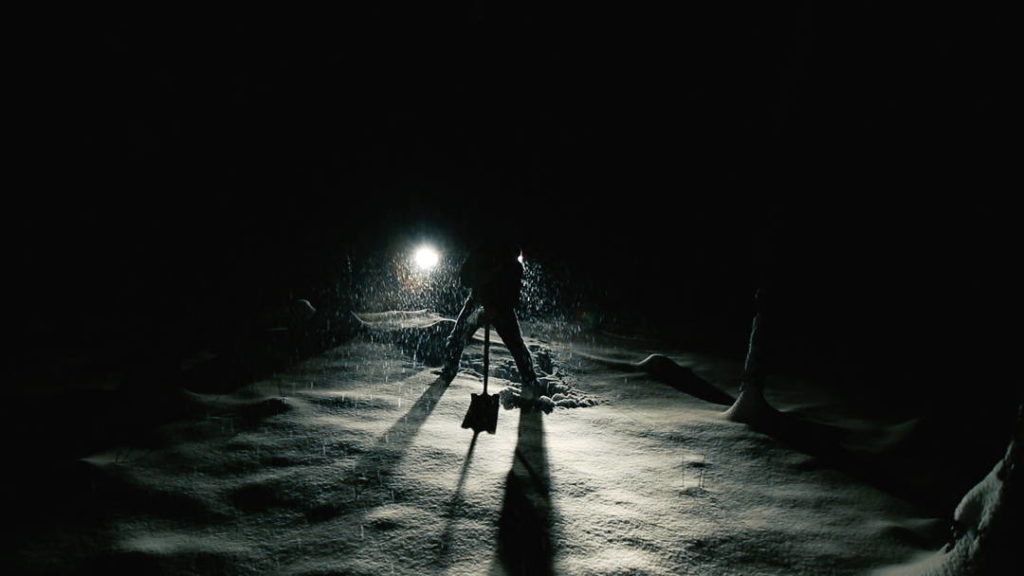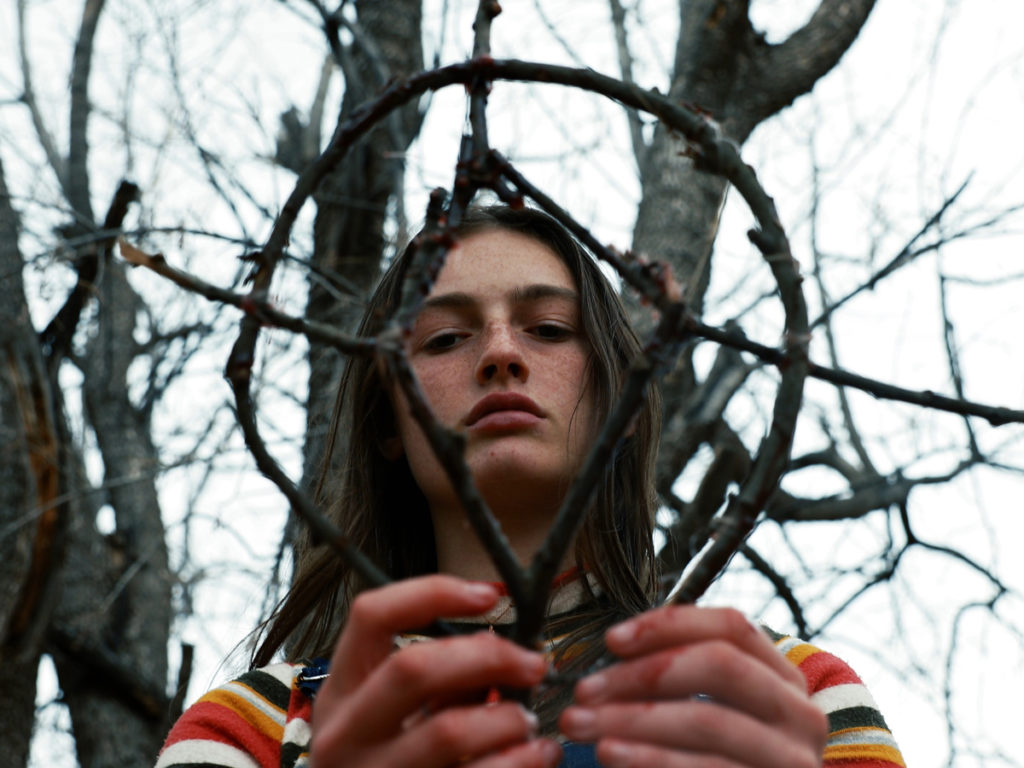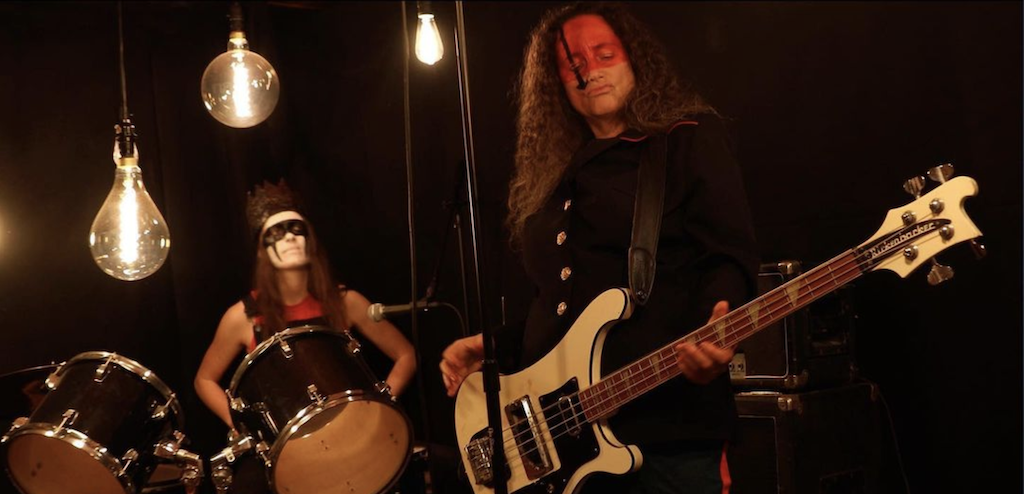blank text
blank text
I. DIY and/or Die
“To me, punk rock is the freedom to create, freedom to be successful, freedom to not be successful, freedom to be who you are. It’s freedom.”
Patti Smith
One of my favorite things in all the world is when artists working in any medium decide to try horror on for size only to find it was where they should have been the whole time. From Jordan Peele to Skottie Young, William Friedkin to T. Kingfisher, Colson Whitehead and S.A. Barnes to Alex di Campi and Erica Henderson, all the way up to the undisputed king of the universe himself–Chuck Tingle–there’s no end to the incredible artists who have found their way to horror after successful careers in all sorts of other genres.
Of course, there are as many reasons for this as there are artists working in horror, but I like to think that one of the most prevalent ones is horror’s profound genre inclusivity. The whole scene is, at its heart, fueled by a kind of punk rock DIY ethos: if you don’t see the scares you want in the world, go out and make them. Do it yourself. Figure it out. There’s nobody stopping you. In fact, there’s probably a whole host of talented artists just waiting on the sidelines to cheer you on for making your own place in the community.
That’s where the Adams family comes in.
The story goes like this: dad John Adams, mom Toby Poser and their two daughters Lulu (elder) and Zelda (younger) started making movies together just about ten years ago. Their movies are all self-funded family affairs, giving them the creative freedom to control every last part of the process: writing, acting, producing, directing, sound design, the Adamses do it all, and what’s more, they do it together. They all share duties and foster an environment of collective creative experimentation and problem solving. If something they try works, amazing if not, they learn their lessons from it and try something different next time. They answer to no one but themselves, and always tell the stories that they want to tell.
Their first few movies were generally oddball indie fare, family-driven crime thrillers with a sense of humor and dramedies with heart to spare, but then, a handful of movies into their family filmmaking career, they decided to change gears and try their hand at horror. For all our sakes, I hope they never, ever look back.
II. Whispers from the Shadows
“We need ghost stories because we, in fact, are the ghosts.”
Stephen King
A lone man in a respirator mask digs the rubble out of a house mid-renovation while, somewhere else in the house, “After You’ve Gone” plays through a set of tin-can speakers in an old Victrola set high up on a dusty mantel. This is the first shot in the Adams’ The Deeper You Dig, and it sets the movie’s tone perfectly. By the time we return to this scene later on in the movie’s runtime, it goes from being odd and spooky to downright fucking mesmerizing.
At the movie’s outset, Ivy (Toby Poser) is a tarot card reader and generally benign con woman, scamming locals out of their money with the promise of reaching through the veil and contacting their dearly departed. She may have had some genuine sensitivity to the supernatural once, but whatever was there is by now long gone. Echo (Zelda Adams) is Ivy’s teenage daughter, a sweet kid who likes hunting and sledding, with a real sarcastic streak and charm to spare. Ivy and Echo live a nice, quiet life in a secluded community, going about their days of work and school (respectively) with little fuss, keeping each other company as best they can.
Meanwhile, Kurt (John Adams) is another loner in their community, renovating and fixing up the house seen in that spooky opening shot. Kurt also likes to drink. So one night, while he’s driving home after knocking back more than a few shot-and-beer combos over dinner, his attention drifts as he watches a family of deer cross the icy road ahead.
His eyes only leave the road for a second, but a second’s all it takes. There’s a thump under the tires. The car shakes. When he stops and gets out to investigate, he finds Echo, fresh off a nighttime sledding run, dead on the side of the road.
Like the best noir stories, The Deeper You Dig effortlessly poses a single, piercing question to its audience: what would you do if this happened to you?
What would anybody do?
Well, if you’re Kurt, you’re going to make the worst possible choice in a moment of half-drunken panic and decide to cover it up. In the middle of the night, with the snow falling all around him, he drives the dead girl out to the middle of the woods and tries to bury her in a shallow grave. When that doesn’t take, he carts her corpse back to the house he’s renovating, stashes her in a filthy old bathtub and leaves her there to rot. Idiot that he is, he actually thinks that’s the end of it.

With a void-black setup like that, you’d be forgiven for thinking that The Deeper You Dig was anything but a pitch-perfect neo-noir thriller and make no mistake, it is that, a vicious pressure cooker that never stops ratcheting up the nerve-shredding tension but the further you travel (the deeper you dig? Har-har) into the movie’s weird, bleak, and terrifying heart, the more you start to see the beautiful, horrifying machinery turning just below the surface. So when Echo starts showing up uninvited in Kurt’s waking life, she seems like a guilt-induced hallucination at first. But she’s so much more real than some bad dream, and even dead, Echo has plans of her own.
Ivy’s con-woman tarot act isn’t there by mistake, after all; it’s just another trick the movie plays on the audience to keep us entirely off our axis. It’s there to fool the viewer into believing that this movie takes place in a world where the supernatural isn’t just bullshit, it’s a joke played on poor suckers searching for meaning in a cold, cruel world that doesn’t give a single solitary shit about them.
But that’s the funny thing about ghost stories: you never really believe them until you find yourself trapped in one.
Like all Wonder Wheel/Adams Family flicks, it’s kind of hard to wrap your head around the fact that this is a movie that’s, for all intents and purposes, homemade. This is a fact that has held true since they started making pictures, but in The Deeper You Dig, it’s easy to see the family’s hard work really starting to pay dividends. There’s a singularity of vision and composition here that so many big-studio, big-name, macrobudget productions can hardly compete with. It’s a claustrophobic, uncomfortable watch entirely by design.
Visually, the movie never stops being startling to look at. The Adamses know how to use ambient conditions to great effect–it’s shot primarily using natural light, in natural weather, be it a nighttime snowstorm, a bright sunny day or a gray dismal evening. It’s nothing short of amazing what this family can do with a camera, a tripod, and a little imagination.
Look: The Deeper You Dig is a fantastic flick all on its own, but when it comes to horror, this was just the Adams Family laying the groundwork. It was their next movie that was always going to put them on the map.
III. Spring eats Winter, Winter eats Fall, Fall eats Summer, Summer eats Spring
“To me, punk is about being an individual and going against the grain and standing up and saying ‘This is who I am.'”
Joey Ramone
For their next movie, the Adamses were planning on getting ambitious. A larger cast, different shooting locations, higher production value. They were really going to swing for the fences with this one.
But then COVID hit, and they had to scale back their plans, shaving down the scope of the movie they wanted to make and the story they wanted to tell until it was sharp and bright as a razor in the sunlight.
The result? Hellbender.
Produced again by the Adams’ company Wonder Wheel Productions, distributed by Yellow Veil Pictures (The Long Walk, Blood Quantum, Horror Noire, La Llorona) and shot on a cross-country road trip that stretched 20,000 miles from the Adams’ home state of New York all the way up to Maine, then over to Washington and the Pacific coast, Hellbender is the story of lonely teen Izzy (Zelda Adams) and her overprotective mom (Toby Poser), who live an isolated life together deep in the woods. Mother says Izzy’s sick, that she can’t go out into the world beyond, or meet people, or make friends. Mother says that the world is dangerous for Izzy.
But surprise, surprise Mother’s been lying. Turns out, they’re the dangerous ones.
When Izzy sneaks out one day and ends up meeting a charming local college girl, the world comes slashing and burning through her carefully-curated existence, tearing down the walls between what seems and what is. When Izzy comes back for more the next day, she ends up doing tequila shots and lounging around the pool with the girl and her friends. When one of the kids suggests Izzy eat an earthworm in lieu of the traditional maguey worm at the bottom of the bottle, Izzy’s more than happy to oblige. Mother has raised her strictly vegan, after all. She’s never eaten anything living before, and she’s never had friends. You can’t blame the girl for being curious, for wanting to impress.
That’s where all the trouble starts.
Turns out, Izzy and Mother are both Hellbenders, ancient and mysterious creatures that the movie describes as a cross between a witch, a demon, and an apex predator. They look like people, but they’re so much more and so much worse.
See, the funny thing about Hellbenders is that while they devour the living, it’s not the meat or the blood, or the living essence that sustains them, no. It’s the fear. Hellbenders want you to be scared before they eat you, because fear is what feeds them, keeps them alive for centuries, makes them strong. The more dread and terror they can inspire and consume in turn, the greater their power becomes.
Just like horror creators.
It’s hard to say for sure if the Adams’ meant for Hellbenders to be such a perfect metaphor for those of us who make our trade in scares, but if they did or didn’t, they sure hit the nail on the fucking head—no big surprise there.
Over and over, Mother tells Izzy that they have to behave, that with great power comes great responsibility and all that happy Ben Parker bullshit but Izzy isn’t exactly convinced. And what’s worse, she’s starting to not give a good goddamn in the face of her growing monstrous power.

Hellbender isn’t just a movie made within the Adams’ personal DIY ethos, it’s a movie about that selfsame yearning to break free, to claim one’s own identity. The movie documents Izzy’s becoming, her growth from awkward, sheltered teen in the woods into bloodthirsty predator, utterly fearless and made of all the stuff of primordial human nightmares.
This is a movie that concerns itself with seasons and need, death and failure, the fragility of legacies and the futility (and questionable necessity) of control. Cycles are the name of the game here, and as Izzy grows more fully into herself, Mother tries to curb her daughter’s predatory urges before dropping all parental subtlety and going for the Hail Mary in one of the picture’s most telling lines:
“If you break my heart, I’ll devour you.”
Mother says this to her daughter almost casually, even half joking, but many a true word is spoken in jest, as the saying goes. Even so, she still can’t quite grasp that she’s got it all wrong: through her many lies and misguided systems of control, Mother’s the one who’s already broken her daughter’s heart. And now she’s the one who’s due to be devoured. Hellbenders, it turns out, live their lives just like the passing of the seasons:
Spring eats Winter, Winter eats Fall, Fall eats…
Hellbender both is and isn’t about the morality of the characters at its heart: while Mother has her own strict moral code that she lives and raises Izzy by, Izzy is all urge and need and hunger. She’s a great white shark in the form of a teenage girl, a direwolf in busted Converse All-Stars.
But one of the neatest storytelling tricks the film pulls is how it straight-up refuses to take any kind of moral stand one way or another on either Mother or Izzy’s actions. It never says who’s right and who’s wrong, because it knows that ultimately, right and wrong, good and evil, they’re small concepts, hidebound and pitifully human. They don’t really matter when you’re a cross between a witch, a demon, and an apex predator.
Is Mother right to try and keep their predatory natures contained? Yes. Is Izzy right to give into her own bloodthirst and turn the chilly countryside into her own personal Golden Corral buffet? Also yes.
Hellbender shuns easy answers in pursuit of something truer and so much messier, and that’s where its beauty is really found.
Like The Deeper You Dig, Hellbender’s production value is basically outrageous, just somehow even more so. Where they previously only shot their movies from a static tripod, with Hellbender, they started integrating drone shots (courtesy of Zelda) that are so expertly executed, you’d be forgiven for thinking they’d hired someone with fifty years of cinematographic experience.
The special effects here also rate a mention unsurprisingly they’re great, but when you take into account the scope of the movie’s production, we should just give them all the awards, right now. A lot of microbudget indie movies sport fun special effects, sure, but we’re all friends here, we can be honest with each other: those effects are almost always noticeable in a way that doesn’t exactly work as well as you’d hope. Usually, it just shatters your suspension of disbelief well past the point of repair.
Not so with Hellbender. Every last special effect in this flick feels natural, normal, and completely seamless, which is made all the more astonishing when you consider some of the how-the-hell-did-they-do-that tricks they pull off during the movie’s runtime. Make no mistake about it: Trey Lindsay, Hellbender’s visual effects supervisor, managed a fucking miracle here.
Even the movie’s soundtrack, provided by Zelda and Toby’s DIY punk band H6llb6nd6r, absolutely rules: the songwriting is evocative and spooky, simultaneously intimate and sweeping, propelled along by Kim-Deal-esque bass crunch and ghostly vocals in equal measure.
IV. All the Devils are Here
“Horror is the future. And you cannot be afraid. You must push everything to the absolute limit, or else life will be boring. Horror is like a serpent: always shedding its skin, always changing. And it will always come back.”
Dario Argento
You know that feeling when you discover some new (or at least, new to you) band/author/artist/etc that’s been resolutely doing their own thing for years, creating unique, unadulterated art that really resonates with you, and you just find yourself hoping, please, please let them be successful in a way that doesn’t water down the magic?
That’s how I feel about the Adams Family.
What they do best is the stuff that horror runs on: honest human stories, a solid DIY ethic, a good sense of humor, and enough scares, bloodshed and mayhem to keep even the greediest gore-hounds happy. They know exactly what they want to do and say with their art, and they do it until they blow the bloody doors off.
There’s a kind of magic to their work that, at the end of the day, deserves all the attention and applause in the world. Hellbender has been getting a ton of good press since it came out on Shudder last year, and for damn good reason. I hear that their next movie (another horror flick, thankfully) is going to be a period piece this time around, their own unique spin on an old west tale.
I legitimately can’t wait to see how it turns out, but whatever it ends up being, I’m sure it’s going to be all-gas-no-brakes great. After all, the Adams Family knows exactly what they’re doing. Shit, collectively, they’ve got decades of experience doing it—and by their own rules, no less.
Talk about being punk as fuck.
Stream Hellbender and The Deeper You Dig on Shudder.
Order Matthew Lyons’ newest novel, A Black and Endless Sky, from your favorite retailer:
Apple | Bookshop | Amazon | Barnes & Noble | IndieBound



